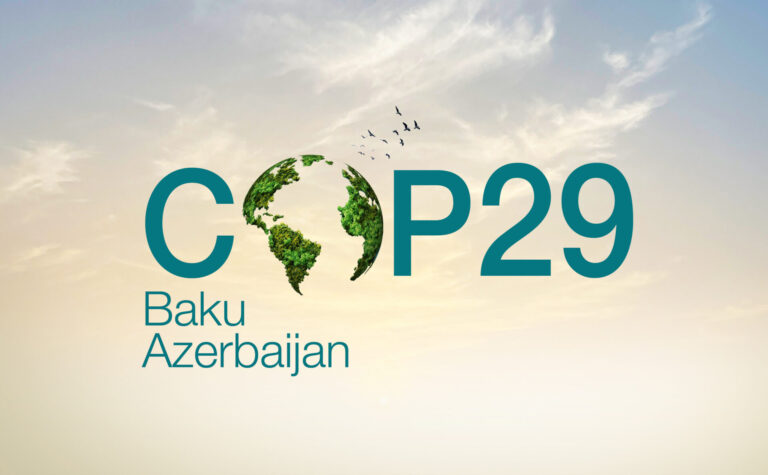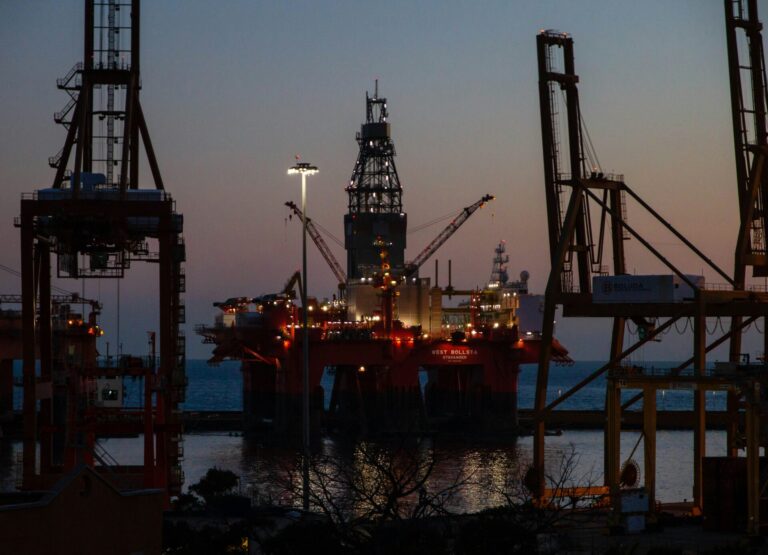G20 Leaders Signal Support for Climate Finance Goals
As discussions on the New Collective Quantified Goal (NCQG) for climate finance heated up, attention turned to the G20 summit happening simultaneously in Rio de Janeiro. The COP29 President, Mukhtar Babayev, called on G20 leaders to provide guidance that would help negotiators at COP29 finalise the finance target.
In their statement, the G20 leaders expressed their support for the NCQG, emphasising their desire for successful negotiations at COP29. They committed to backing the summit’s efforts and highlighted the importance of achieving a clear agreement on finance mechanisms. While this showed alignment with COP29’s objectives, the statement was relatively broad and lacked detailed commitments, which became a point of discussion throughout the day.

Mixed Reactions to the G20’s Approach
The G20’s declaration was met with both optimism and criticism. UN climate chief Simon Stiell interpreted their statement as a clear mandate for COP29 negotiators to ensure progress on the finance goal.
However, some observers felt it did not go far enough. Climate campaigner Harjeet Singh voiced disappointment, describing the statement as falling short of the ambition needed to tackle the climate crisis. He highlighted the urgency for concrete financial solutions to help vulnerable nations adapt to the growing impacts of climate change.
Exploring New Sources of Climate Finance
One notable proposal mentioned in the G20’s communiqué was the idea of introducing a tax on ultra-high-net-worth individuals to generate additional funding for climate and sustainable development goals. This approach could open a new avenue for mobilising significant resources, especially as the traditional funding sources are often stretched thin.
The communiqué also highlighted the International Development Association (IDA), a World Bank fund aimed at tackling poverty, as a potential model for climate finance mechanisms. Discussions are ongoing about how these examples can be adapted to address the unique challenges of climate finance.
EU Steps Forward with Potential Commitment
With only a few days left, COP29 negotiators face mounting pressure to solidify an ambitious yet practical agreement on climate finance. The talks are critical to supporting vulnerable nations, addressing loss and damage, and accelerating the global shift to a more sustainable future.
Day 8 was a pivotal moment for COP29, with the G20’s involvement adding both hope and challenges to the negotiations. All eyes now turn to whether these signals of support can translate into actionable commitments before the summit comes to an end.
Catch Up On Previous COP29 Updates

COP29 Day 11 Summary: 22nd November 2024
The 11th day of the COP29 climate summit in Baku, Azerbaijan, concluded with an agreement on a new climate finance

COP29 Day 10 Summary: 21st November 2024
COP29 has brought climate finance to the forefront of global discussions, highlighting the urgent need for developed nations to support

COP29 Day 9 Summary: 20th November 2024
On the ninth day of COP29 in Baku, Azerbaijan, discussions brought to light significant disagreements between developed and developing nations,

COP29 Day 8 Summary: 19th November 2024
Day 8 of COP29 in Baku, Azerbaijan, focused on tackling the challenge of climate finance, with a spotlight on how

COP29 Day 7 Summary: 18th November 2024
COP29 is proving to be a pivotal yet contentious chapter in global climate negotiations. With only five days left in

COP29 Weekend Summary: 15th-17th November 2024
This weekend at COP29 highlighted key debates about fossil fuels and strategies to combat the climate crisis. Progress was made

COP29 Day 4 Summary: 14th November 2024
Day four of COP29 in Baku brought critical discussions to the forefront, focusing on two pressing issues: the urgent need

COP29 Day 3 Summary: 13th November 2024
On Day 3 of COP29 in Baku, Azerbaijan, global leaders pushed for stronger climate cooperation, with discussions centering on several

COP29 Day 2 Summary: 12th November 2024
On Day 2 of COP29 in Baku, Azerbaijan, global leaders continued discussions on urgent climate action, focusing on financing, emission

COP29 Day 1 Summary: 11th November 2024
The 29th United Nations Climate Change Conference (COP29) commenced on November 11, 2024, in Baku, Azerbaijan, marking a pivotal moment






